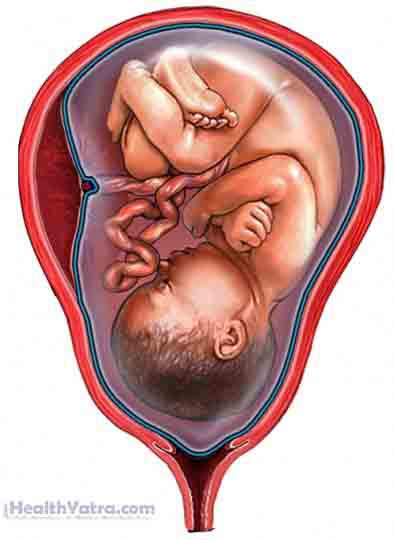परिभाषा
Preterm labor occurs between the 20th and 37th week of pregnancy. This labor includes both uterine contractions and cervical changes.
A full-term pregnancy lasts 38-42 weeks but preterm labor can lead to early delivery. Infants born before 37 weeks are considered premature.
का कारण बनता है
In most cases, the cause is of preterm labor is unknown.
Some preterm labor is associated with preterm premature rupture of membranes (PPROM). PPROM is the rupture of both the amniotic sac and chorion membranes. It generally occurs at least one hour before labor begins.

जोखिम कारक
The chance of preterm-labor is greatest in women under the 18 years or over 35 years. Other maternal factors that may increase the chance of preterm labor include:
- Low socioeconomic status
- Lack of prenatal care and social support
- Being underweight or obese before becoming pregnant
- Physical, sexual, or emotional abuse
- Severe depression or anxiety
- मधुमेह
- उच्च रक्तचाप
- Clotting disorders
- हार्मोनल असंतुलन
- निश्चित medications to treat health problems or exposure to diethylstilbestrol (DES)
- धूम्रपान
- Illicit drug use
- शराब का सेवन
Pregnancy complications that may increase your risk of preterm labor include:
- पूर्व प्रसवाक्षेप
- Placental abruption
- Premature rupture of the membranes
- Carrying more than one baby
- Vaginal bleeding after 16 weeks, or during more than one trimester
- Infection in the cervix, uterus, vagina, or urinary tract including STDs
- Being pregnant with a single fetus after in vitro fertilization (IVF)
- Presence of a retained intrauterine device
- Incompetent cervix
- Too much or too little fluid surrounding the baby
- Surgery on your abdomen during pregnancy
- Amniotic fluid infection
- Intrauterine fetal death
- Intrauterine growth delay
- Birth defects in the baby
Other factors associated with an increased chance of preterm labor include:
- History of one or more spontaneous second-trimester abortions
- Less than six months between giving birth and the beginning of the next pregnancy
- A previous preterm birth
- गर्भाशय फाइब्रॉएड
- Abnormally shaped uterus
लक्षण
लक्षणों में शामिल हो सकते हैं:
- Abdominal pain that feels something like menstrual cramps
- Dull pain in the lower back
- Pressure in the pelvis and tightening in the thighs
- Vaginal bleeding or spotting, or watery discharge
निदान
Your doctor will ask about your symptoms and medical history. A physical exam will be done. Your doctor may recommend tests to check your cervix and membranes have ruptured. An ultrasound will help your doctor see internal structures and the baby.
Fluids in the cervix will also be tested for sign of labor progression. A tocometer may be placed to help monitor contractions.
उपचार
Treatment will depend on your baby’s development, especially the growth of the lungs. If your doctor believes the baby is ready, the labor may be allowed to continue. If the baby is not ready to be delivered, your doctor may try to stop the labor. Stopping labor is a complicated process and may not always work. Some treatment options may include:
- Tocolytics —may delay labor for a few days
- Corticosteroids —to help the baby’s lungs develop
- Antibiotics—if an infection is suspected or present
रोकथाम
To help reduce your chance of preterm labor, take the following steps:
- Get the proper prenatal care throughout your entire pregnancy.
- Eat a healthy, balanced diet with plenty of fruits, vegetables and whole grains.
- Avoid smoking, alcohol, and drugs.
- Keep chronic diseases under control.
- Stay active during your pregnancy. Your doctor can give you exercise guidelines that are right for you.
- If you are at high-risk for premature birth, talk to your doctor about progesterone therapy.
